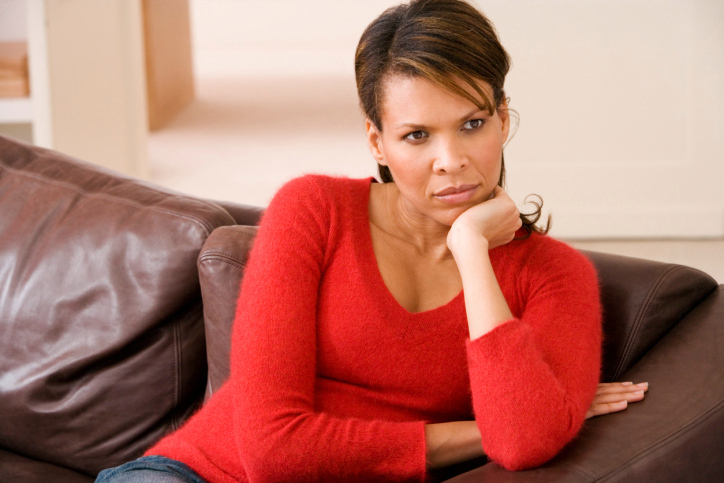Depression In Black Woman | BlackDoctor #strongblackwoman #mentalhealth
| This is an important article to share with many. The high, mythological standard of “the strong black woman” is hurting quite a few people who are suffering in silence — unable to seek help during times of need.
Let’s break that chain. |
Depression In Black Woman | BlackDoctor #strongblackwoman #mentalhealth |
http://blackdoctor.org/462194/black-women-depression/
The New Face Of Depression: The “Strong” Black Woman
Black Woman depressed
There are countless myths and stigmas that surround depression in the Black community–particularly Black women. Myths surrounding the “strong Black women” can create needless pain and confusion, and can ultimately keep people from getting proper treatment. Strong Black women are supposed to 1.) have their own, 2.) not depend on anyone else for anything, 3.) be able to do others and for themselves without showing weakness, etc right? The following statements reflect some common misconceptions about African Americans and depression:
“If our people could make it through slavery, we can make it through anything.”
“When a black woman suffers from a mental disorder, the opinion is that she is weak. And weakness in black women is intolerable.”
“You should take your troubles to Jesus, not some stranger/psychiatrist.”
“You’re too strong of a Black woman to be feeling this way. Ge over yourself.”
The truth is, people with depression can’t just “snap out of it.”
Professor and blogger writer Monica Coleman, Ph.D writes:
“In many ways, I do think that there is a greater stigma among African American culture than among white cultures. I live in southern California, and many white people will freely reference “seeing a therapist” in normal conversation. Black people don’t do that. Seeing a therapist is generally seen as a sign of weakness or a lack of faith. There is still an active mythos of “the strong black woman,” who is supposed to be strong and present and capable for everyone in her family – and neglects her own needs. In the midst of a depressive episode, I had a friend say to me, “We are the descendants of those who survived the Middle Passage and slavery. Whatever you’re going through cannot be that bad.” I was so hurt and angry by that statement. No, depression isn’t human trafficking, genocide or slavery, but it is real death-threatening pain to me. And of course, there are those who did not survive those travesties. But that comment just made me feel small and selfish and far worse than before. It made me wish I had never said anything at all.”
Symptoms of clinical depression can happen at…
… any time to any woman. Due to cultural backgrounds, depression may be exhibited differently among African Americans. If you suspect yourself—or someone you care about—needs could have clinical depression, take a look at the following list of symptoms. If you experience five or more for longer than two weeks, if you feel suicidal, or if the symptoms interfere with your daily routine, see your doctor:
Depressed woman sitting on couch
- A persistent sad, anxious or “empty” mood, or excessive crying
- Reduced appetite and weight loss or increased appetite and weight gain
- Persistent physical symptoms that do not respond to treatment, such as headaches, digestive disorders and chronic pain
- Irritability, restlessness
- Decreased energy, fatigue, feeling “slowed down”
- Feelings of guilt, worthlessness, helplessness, hopelessness, pessimism
- Sleeping too much or too little, early-morning waking
- Loss of interest or pleasure in activities, including sex
- Difficulty concentrating, remembering, or making decisions
- Thoughts of death or suicide, or suicide attempts
Remember, there’s no shame in seeking help. No man–or woman–is an island.




